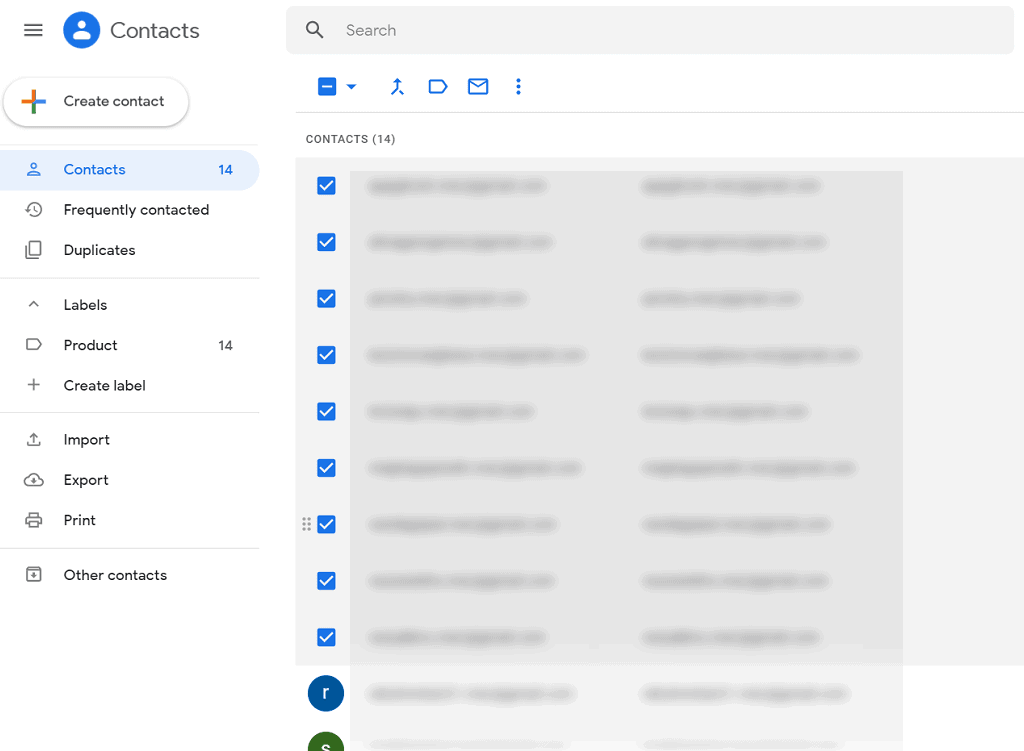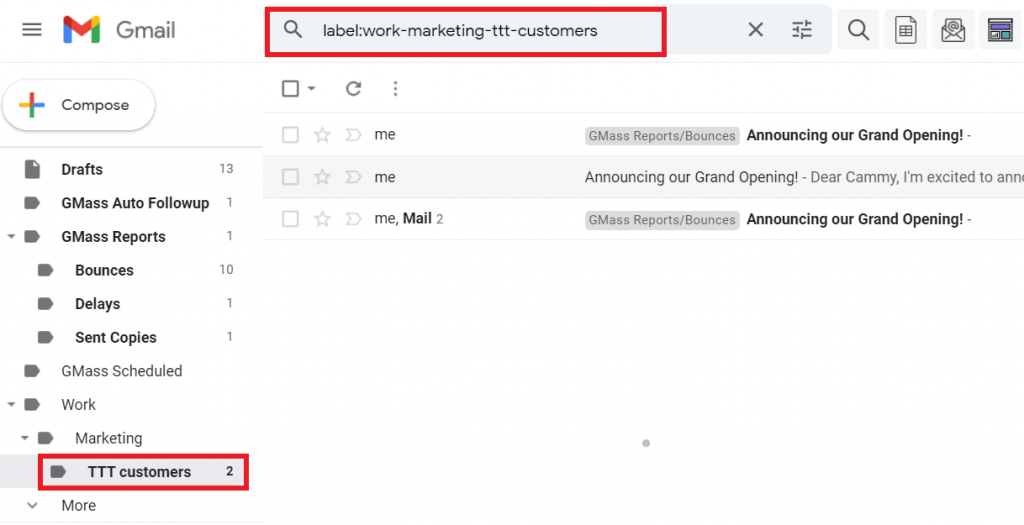Consider these factors when purchasing an email list of a pathologist to ensure the data is accurate, in compliance with the law and suitable to your marketing or outreach objectives. These are the most important elements to be considered. Quality of the data and accuracy
Source of Data - Verify the data's source. This could include professional directories such as health databases or verified opt-in contacts. This will guarantee that the email messages are accurate and up to date.
Verification process: Check that the list has recently been verified. Providers need to establish a procedure for verifying email addresses and eliminating inactive or invalid addresses. Good quality email lists lead to lower bounce rates and better delivery capabilities.
Segmentation & Customization Search for lists that include options like geographic location, subspecialties, years of experience or hospital affiliations. The ability to customize your website allows for more specific marketing, boosting your odds of reaching the right people.
2. Legal Regulations
Data Privacy Regulations – Ensure your email list is compliant with data privacy laws in Europe (GDPR) as well as the U.S. (CCPA), and in any other pertinent. Data from pathologists should be handled and stored according to the applicable laws while protecting the rights of each patient.
CANSPAM Act – If you’re located in the U.S.A. and/or are targeting U.S. pathologists make sure your email lists are compliant with. The CANSPAM Act governs commercial emails. Infractions could lead to heavy penalties.
Verify that all emails have received the correct opt-in permission. This guarantees that pathologists are in agreement for marketing content to be delivered, reducing the chance of receiving spam complaints.
3. Provider Reputation
Credibility of the Provider: Select a reliable provider that has experience in delivering precise and accurate email lists. To gauge the service quality, read reviews, seek out testimonials, and connect with other health marketers.
Transparency: The provider must be clear about the methods employed to collect data as well as how often it is updated. Beware of companies that are ambiguous in regards to the sources of their email list.
Customer Service: Find a company that provides strong customer service if you have any questions about the information on this list, or if you encounter problems with technology.
4. Costs and Return on Investement (ROI).
Pricing Model: Consider different pricing models, such as pay-per contact or fixed fees for lists or subscriptions. Consider whether the price aligns with the budget for marketing and your possible ROI (ROI).
Refund policy: Some service providers offer refunds or guarantees for replacement if an important amount of emails is not valid or doesn't meet the requirements promises. Verify the provider’s clear policy regarding refunds and replacements.
Value for money - Examine the cost of a list versus its quality, degree of segmentation and other services (e.g. campaign management, CRM Integration). The list with the lowest price may not be the most effective when it's not delivered in a timely manner.
5. Data Usage and Ownership
License Rights and Usage Rights - Make sure you know if the list can be used just once or you will own it to continue campaigns. Certain providers offer licenses for single-use some others offer unlimited use, which can be beneficial for long-term outreach campaigns.
Exclusive vs. shared lists: Choose whether you'll be the sole owner of a list of email addresses, or whether it will be given to another buyer. Exclusive lists can lead to better engagement because the subscribers won't get numerous emails.
6. Data Integration and Format
Compatibility with CRM/Email-Marketing Tools: Verify that the list of emails can be easily incorporated into your CRM tool or email marketing software. The data must be in a format that is widely used such as CSV or Excel, which can be imported seamlessly.
Data Segmentation. Examine if it's easy to sort and segment the list after integration. Effective segmentation can result in personalized emails, which usually are more open and have higher response rates.
7. Ethical Questions
Relevance: Pathologists work in extremely specialized areas. Make sure that your product, service or message is pertinent to their requirements. Inadequate data can damage your reputation as a business and lead to spam complaints.
Spam reports are often caused by sending unwanted emails or other content. Plan your campaigns carefully and ensure that you follow the list responsibly to protect your reputation.
The article's conclusion is:
A pathologist email list can be a powerful marketing tool when done correctly. Prioritize quality of the data, legal compliance, and the reputation of the provider to maximize the effectiveness of your outreach. It is important to tailor your list to meet your individual needs and adhere to the rules of data privacy and ethical marketing guidelines. If you take these points into consideration and ensuring that you are able to design efficient and effective email campaigns directed at pathologists. Follow the top rated pathologist email list for site advice.

What Factors Should I Be Thinking About When Buying An Urgent Care Email List?
To determine whether an urgent care email database is effective in accuracy, complete, and pertinent to your marketing goals You must consider various factors. These are the most important aspects to consider. Quality of data and accuracy
Source of data: Verify that the service provider has sourced their information from reliable sources, such as medical associations or databases for healthcare. Avoid lists that are created through scraping, or any other method that may not be reliable, as they may contain inaccurate data.
Verification process: Confirmation that the list of email addresses is updated regularly and verified. A trusted provider will have strict verification procedures to eliminate invalid, old or duplicate email addresses. This ensures that you receive the highest delivery rates and decreases the bounce rate.
Segmentation and Targeting: The list should offer segmentation options like location (city, state, region) and the dimensions of the urgent care facility and the specialties they offer (e.g., pediatrics, diagnostics) and the decision-makers' roles (e.g., doctors, practice owners, etc.). A targeted list increases the effectiveness of your outreach, and increases engagement rates.
2. Legal Regulations
Data Privacy Laws - Ensure the list complies to relevant privacy laws for data like the General Data Protection Regulation in Europe and the California Consumer Privacy Act in the U.S.A. Email addresses need to be legally collected and subject to consent.
CAN-SPAM Act Compliant: Marketing email campaigns within the U.S. are required to conform to the CANSPAM Act. It is essential to include a clear and easy-to-use opt-out option, avoid making use of misleading subject lines and also your physical address. Non-compliance will result in penalties or a damaged image of your brand.
Opt-in Consent: Ensure that all addresses on the list were obtained by explicit consent. This means that the recipients have explicitly agreed to receive marketing emails. This minimizes the risk of spam complaints and legal issues.
3. Provider Reputation
Choose a trusted service: A track record of providing high-quality and compliant email lists is an excellent indication. Look through reviews, case studies, and customer reviews to assess the provider's customer satisfaction.
Transparency: Providers should be transparent in the way they obtained the information and when it is changed. If the provider of data is not able to give the exact information, it could be a sign of poor quality data.
Customer support: It's vital to have a reliable customer service team when you need help with any problems with your list or its customization. You'll get more value out of your list if the service you use is a good fit.
4. Cost and return on investment (ROI).
Pricing Models: Email list providers generally offer different pricing structures such as pay-per-contact and flat fees. Pricing models must be compared to your marketing budget, as well as ROI expectations. The price of the list should be balanced with the accuracy and relevancy of the data.
Refund or Replacement policy A reputable supplier usually offers the option of a refund or replacement if an important portion of email addresses is not valid or undeliverable. Make sure you understand the policy before buying.
Value for Money: Rather than selecting the most affordable option look for lists that offer value through accurate information and precise segmentation. A database that is of high quality will increase engagement and increase return on investment.
5. Ownership and use of data
Lists which can be used multiple times or just for one campaign: Be sure to specify if the list is meant to be used just once or multiple times. Lists which allow for multiple uses offer better value. This is especially the case in the event that you intend to launch ongoing campaigns.
Exclusive vs. shared lists: Determine whether the list belongs solely to your business or shared with other buyers. Shared lists could lead to list exhaustion, as recipients receive marketing communications from multiple businesses.
6. Data Integration and Format
CRM Compatibility: Make sure your list of email addresses is delivered to you in a format compatible to that is compatible with CRM, for example CSV (Comma Separated Values) or Excel. This ensures a smooth and swift integration.
It is designed to be user-friendly and divide it based on your needs. A well-organized email list makes targeting and personalization easier.
7. Ethical considerations
Relevance of the information: Urgent-care professionals are usually busy, which is why it's important that you provide them with pertinent and helpful information. Send messages that address their particular needs. Sending irrelevant content could harm your reputation and diminish engagement.
Be aware of how often you send emails. Over-emailing or sending unsolicited messages can result in complaints about spam and reduce your reputation as a sender.
Conclusion
When purchasing an urgent email list, pay attention to the accuracy of the information and the legality and reputation of the vendor. Ensure the list is regularly updated, and compliant with privacy regulations for data. By delivering targeted content and investing in a reliable and high-quality mailing list you can increase engagement and reap a great ROI for your investment. Check out the expert urgent care email list for site tips.
